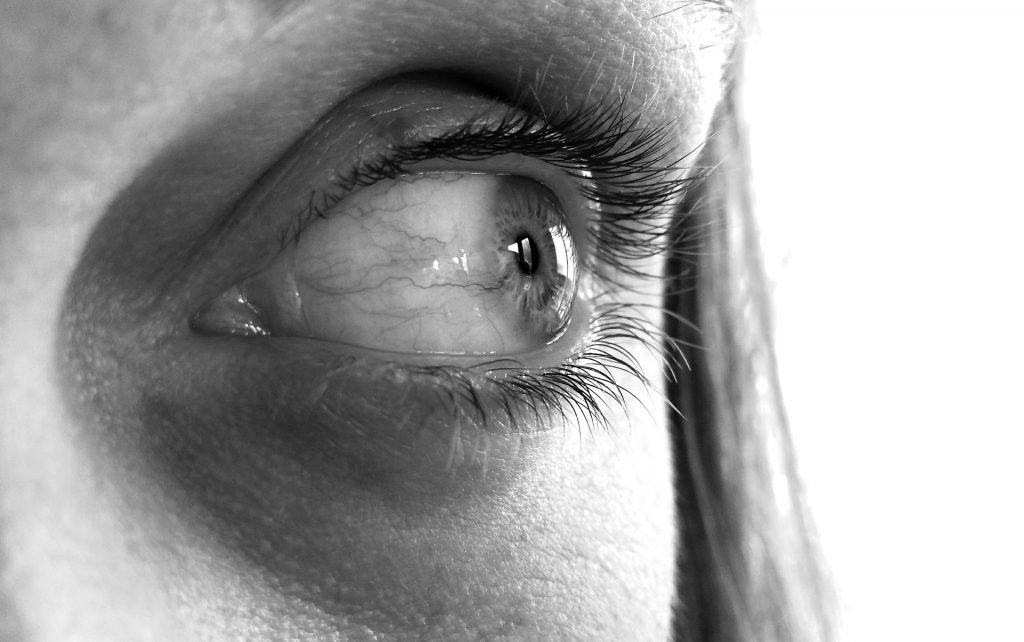6 Possible Causes Of Your Dry Eye Syndrome
Dry Eyes – Figure Out The Why Behind The Issue
If you often experience cloudy vision that comes and goes, a scratchy, sticky, gritty, or irritated sensation, burning and excess tearing, or fatigue and aching around your eyes, you may have dry-eye syndrome. It’s no fun, and can really affect day-to-day life more than you would expect!
Dry-eye syndrome is a condition that affects many of us, but not everyone experiences it for the same reasons. Before we can treat it, we need to know why it’s happening for each individual. Figuring out the source of your particular case of dry eye is a huge key to fixing it. So what are the possible causes of dry eye?
1. Environment
The weather starts getting cold, and it’s time to turn on the heat in your car, office, and home. After a few weeks, you notice that your contacts are getting harder to wear. They are drying out at the end of the day, and your vision gets milky or cloudy at times. You start to experience a gummy feeling in your eyes after concentrating on your computer or reading material for too long. You haven’t had this problem all year! What’s going on?
Dry, dusty, or windy environments are perfect breeding grounds for dry eyes. This is because with less humidity in the air, our tears and healthy natural oils evaporate faster. Just like your skin is drier in the winter time or in harsher climates, your eyes will dry out more quickly in these kind of environments as well.
2. Systemic Conditions
This is one reason that may not come to mind immediately, but systemic conditions such a Sjogren’s disease, thyroid disorders, and various autoimmune conditions can also be causes of dry eye. People respond differently to different diseases, but sometimes these conditions can affect the body’s natural ability to produce healthy tears, oils, and mucous.
3. Medications
As thankful as we are for modern medicine and the quality of life it can offer us, it’s no secret that when it comes to medications, you often give something to gain something. Many medications can alter neurological pathways that affect our tear and oil glands. If you are on certain beta blockers, anti-depressants, or birth control medications, they may end up causing your eyes to be dry.
4. Poor Diet
What we eat affects our bodies and overall health on every level, even small details like how dry or moist our eyes are. If you eat an unbalanced diet that is high in fatty or greasy food, the healthy Omega 3s in your body may be thrown off kilter. Large amounts of “junk food” can raise the level of Omega 6s in your body and overwhelm these necessary Omega 3s. Enjoy everything in moderation, of course, but if your eyes are dry and you find your diet is consistently made up of these kinds of foods, you may want to re-evaluate – it can make your eyes much more comfortable!
5. Ocular Surgeries
Sometimes procedures performed on the cornea of your eye can result in more dryness. Most common for this is LASIK Surgery. Although LASIK is a great benefit to many people, some find that even after they are completely healed their eyes are drier than they were before surgery. This doesn’t mean LASIK is necessarily wrong for you, it is just something to be considered before you commit to the surgery.
6. Natural Aging Process
Like everything else in our bodies, our eyes and their function begin to break down as we grow older. Often elderly people will experience medical conditions such as Blepharitis and Rosacea, which cause inflammation of the oil glands on our eyelids. These oil glands produce the healthy oils and mucous that, when mixed with our tears, create a healthy film over our eyes to keep them lubricated and comfortable. As they grow inflamed, they are often blocked, and need to be expressed so that these healthy oils can be released. We also tend to produce less tears as we grow older, and many people have to use artificial tears as a replacement.
People of all ages, circumstances, and ethnicities suffer from dry eye, and depending on the individual, it can be caused by any one of the above causes. By talking to both your medical doctor and your optometrist, you will hopefully be able to determine the cause or causes of your dry eye and be able to make an educated decision on how to treat it.

